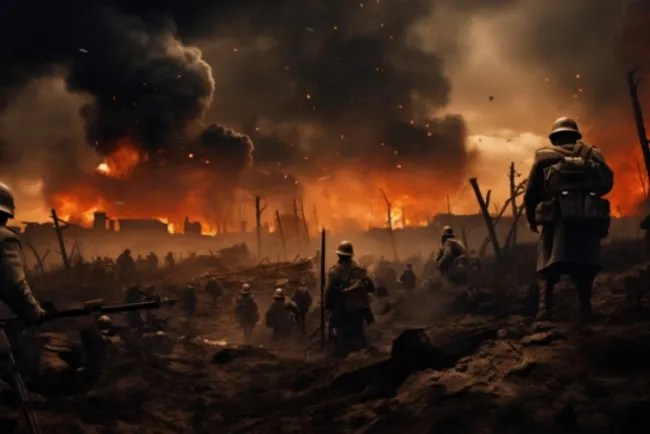Sudan's New Rival Government: A Challenge Amidst Ongoing Civil War
Sudan’s political landscape has dramatically shifted as the paramilitary Rapid Support Forces (RSF), led by Muhammad Hamdan Dalo, announced the formation of a rival government, directly challenging the army-backed administration amid a brutal civil war that has persisted for two years. This conflict has resulted in tens of thousands of deaths and displaced over 13 million people, deepening the humanitarian crisis in the region.
Announcement of the Government of Peace and Unity
The RSF made this announcement via Telegram, declaring the establishment of a “Government of Peace and Unity.” This coalition aims to represent the diverse demographics of Sudan, claiming to provide a more inclusive governance structure. Following a charter signed in Kenya in February, the RSF has sought to solidify its political foundation by aligning with civil and political forces to draft a transitional constitution. This document outlines a roadmap featuring a 15-member presidential council designed to symbolize a voluntary unity across all regions of Sudan.
Concerns Over Sudan's Fragmentation
However, analysts warn that the emergence of this new government could exacerbate Sudan's fragmentation amidst an already dire situation. Satellite imagery has revealed devastating destruction, particularly in North Darfur, where the RSF recently took control of the Zamzam camp for displaced individuals following a violent four-day offensive that resulted in numerous casualties.
International Response and Humanitarian Crisis
In light of these developments, the G7 nations have called for an immediate ceasefire, urging both the RSF and the army-backed administration to engage in meaningful negotiations. The United Nations has labeled the ongoing conflict as the world's worst humanitarian crisis, emphasizing the urgent need for peace efforts and continued engagement with regional leaders. The UN Secretary-General has committed to working alongside his envoy, Ram Lambra, to advance international mediation initiatives aimed at restoring peace.
Economic Deterioration Amid Conflict
The economic situation in Sudan is rapidly deteriorating due to the conflict. The country’s GDP is projected to contract significantly, with estimates suggesting a staggering 40% decline. This downturn severely impacts critical sectors such as agriculture and mining, leaving the financial system in disarray. Over 70% of bank branches have closed, and financial assets have diminished by nearly half. Inflation rates have soared, with food prices now two to three times higher than pre-war levels, and the Sudanese pound has depreciated by over 400% against the US dollar, exacerbating the crisis for everyday citizens.
Conclusion
As Sudan grapples with the formation of a rival government amidst a brutal civil war, the international community faces a crucial juncture in addressing the escalating humanitarian crisis. The call for ceasefire and negotiations is more pressing than ever, as the stakes rise for the millions affected by the ongoing violence and economic collapse. The situation in Sudan remains critical, with urgent action needed to relieve the suffering of its people and pave the way for a sustainable resolution to the conflict.
Stay tuned for further updates on the situation in Sudan and its implications for the region and the international community.
What's Your Reaction?
















